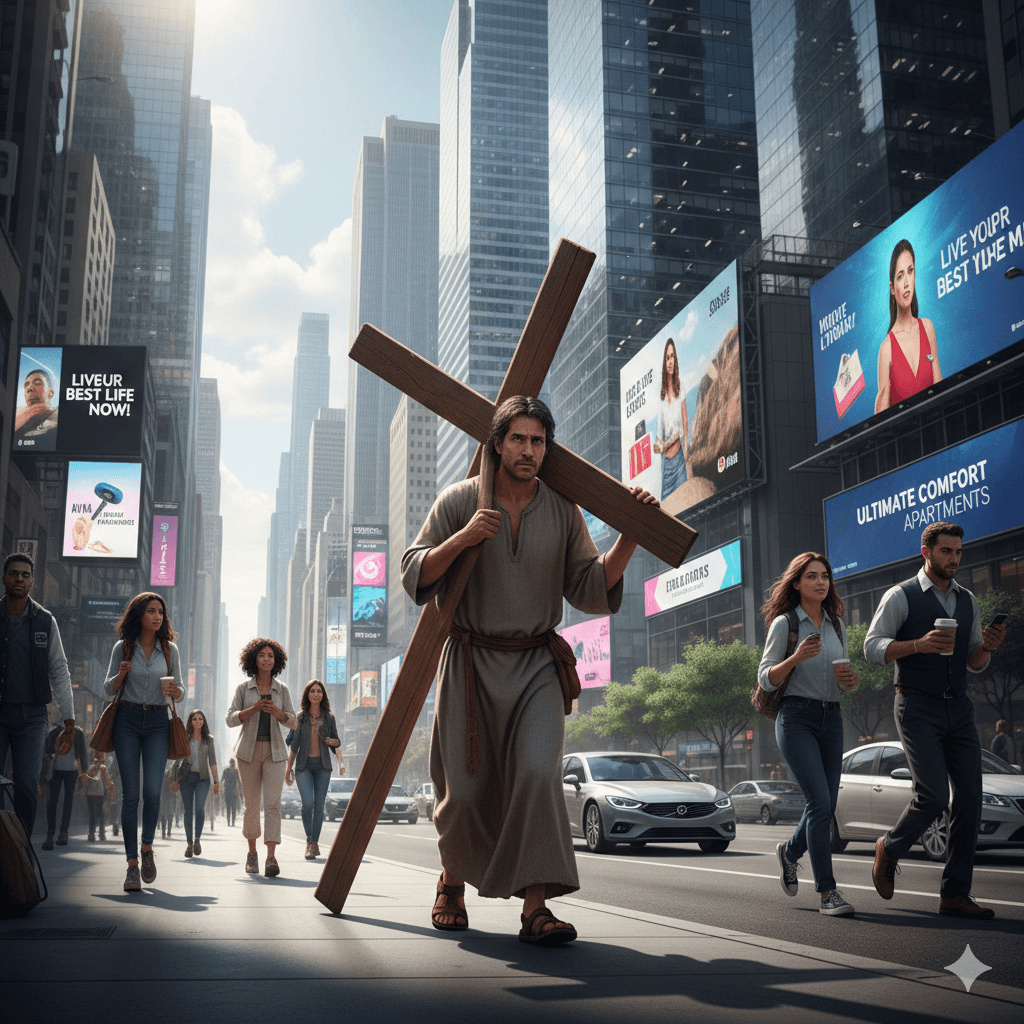27th February, 2026
A Fountain Publication

The Lodestar
Online Magazine for the Thinking Christian

Devotional
The Eye of the Needle: Wealth’s Spiritual Test
“It is easier for a camel to go through the eye of a needle than for a rich person to enter the kingdom of God” (Mark 10:25). Read Mark 10:17—31.
By Paulson Pulikottil
Empirical studies by Paul Piff, the social psychologist, have uncovered that the wealthy are more prone to corruption and extremely poor in giving. Warren Buffett, Bill and Melinda Gates, Narayana Murthi (Infosys), and many others who do commendable service to humanity and are liberal in giving are exceptions.
Jesus said what Paul Piff proved empirically a long time back. The “eye of the needle” is not a small gate in the city of Jerusalem in Jesus’ time, as some interpreters think. There was no such gate! “Eye of the needle” is a hyperbole to illustrate the near impossibility of the rich making progress in their spiritual life.
The story of the rich man who approached Jesus is a good illustration. Since this man was yearning to grow spiritually, he approached Jesus to find out how to enter “eternal life” (Mark 10:17-31). The realisation that there was something more than what he knew and practised made him come to Jesus “running” and “kneeling.” He addressed Jesus as a “good teacher,” being confident that Jesus had the right advice for him.
The conversation between him and Jesus reveals that he has already achieved good spiritual progress according to Jewish norms. Jesus prescribed to him six out of the ten commandments that have to do with human relationships and wealth (Mark 10:19). However, Jesus slightly modified one, which initially said, “do not covet” to “do not defraud.” Covetousness leads to defrauding. In response to Jesus, he claimed that he had followed these “from his youth” (Mark 10:20) since he became morally responsible for his actions. Since Jesus was impressed by his spirituality, he “looked at him and loved him” (Mark 10:21).
By declaring that he has been observing all these rules, he claims to have become wealthy in the right way, not at the expense of others. This is almost equivalent to any claim religious people make these days, too. They have not accepted or given bribes to become rich, they have not exploited anyone, nor have they ever made a living through illegal means. All that they have is made through right and justifiable means.
But Jesus’ response to him was shocking: “You lack one thing!’ (Mark 10:21). What is that one thing the rich lack? Jesus did not make it clear when he said, “Go, sell all that you have and give to the poor.” Jesus was not asking to donate some money or be regular with his tithes, but demanded to give away all he had.
Jesus was not against wealth or the wealthy. Jesus did not ask anyone else but only this man to sell all he had. The disciples left their nets, boats, and tax booths at their own will. Zachaeus offered to give away the wealth he gathered through illegal means and share his legitimate wealth with the poor without any insistence from Jesus. Jesus certainly had many wealthy friends and disciples. Some were so rich that they could throw parties, and Jesus accepted their hospitality, being labelled “a glutton and a drunkard” (Mat 11:19). Jesus' strange demand on this young man was to illustrate to his disciples that the rich preferred their wealth over spirituality if they had to choose between the two. As he expected, the rich man walked away: “Disheartened by the saying, he went away sorrowful, for he had great possessions” (Mark 10:22).
Through this confrontation, Jesus made two powerful statements. First, even the most perfect man still has room to grow spiritually. Second, wealth is so important to the rich that even higher life goals, like spiritual growth, take a backseat. That means it is easier to pass a camel through the eye of a needle than to expect the rich to make spiritual progress.
This does not mean that one must become poor to grow spiritually. But wealth demands worship. Jesus qualified wealth as “mammon,” the name of an Aramaic deity. Jesus said that no one could “serve” God and “mammon” at the same time (Matthew 6:24) since it competes with God for its place in human life, and we are prone to yield to wealth rather than to God when a choice must be made.
We must let the grip that wealth has on our lives go to please God. Spiritual progress by placing riches over love for God is impossible. What we have should not distract us from what we must hunger and thirst for—the righteousness of God.
(To receive these devotionals daily on WhatsApp, click here.)
Share this Article
Advertisements
Explore More on The Lodestar

Four Steps to a Godly Marriage: How Christian Couples Can Prevent Relationship Breakdown
A strong Christian marriage does not collapse overnight—it rises or falls step by step. By understanding the four foundations of a godly relationship, couples can recognise early warning signs and...

Radical Christian Living: Choosing Sacrifice Over Comfort in a Lukewarm World
This article calls Christians beyond lukewarm religion to Spirit-empowered, radical discipleship marked by self-denial, bold witness, and sacrificial obedience to Christ, rejecting comfort and...

Hearing God in the Silence: How to Recognise God’s Voice Through Scripture and the Holy Spirit in a Noisy World
This blog explores how God still speaks today through Scripture, the Holy Spirit’s gentle leading, and quiet moments of reflection, offering guidance, comfort, and clarity in a noisy, distracted...
Subscribe to our free weekly digest.
Join hundreds of others who have subscribed to our free weekly digest for inspiring news, faith, community, family, opinion, and culture content. Stay connected and nurture your spiritual growth with thought-provoking articles delivered straight to your inbox.
Join our growing community of readers today.

